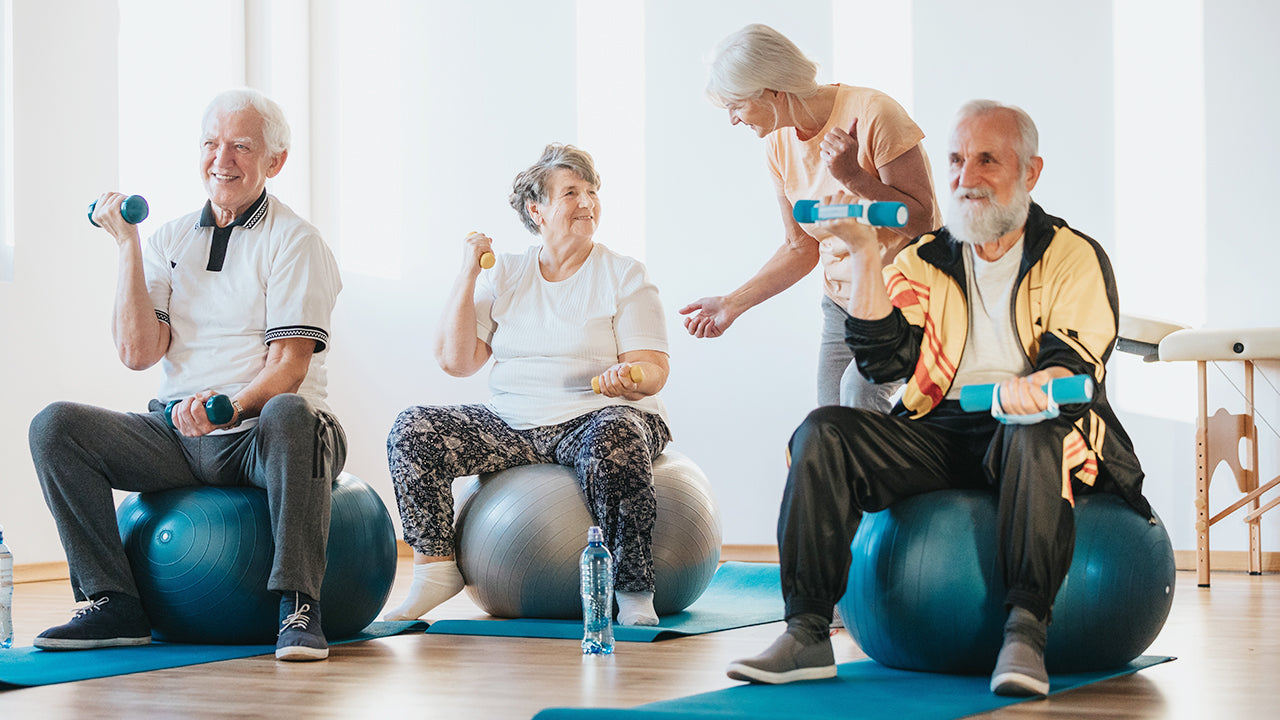Moving our bodies is essential for brain and body health. But in this hustle and bustle culture of modernity, motivation can be fleeting and hard to come by. Sticking to an exercise routine can be challenging!
When you cannot stay motivated, or stay consistent, exercise can become a chore laced with dread and even anxiety. Many of us sign up to the gym following our New Year’s resolution, and up to 50% of people joining the gym in January will cancel their membership in the first 6 months. Staying consistent is key to building a habit and to weaving movement and exercise into your lifestyle.
So, how can we get addicted to working out? We have collected 10 important tips for motivational training to ensure you stick to your workout effectively so you can reap the benefits of movement!
Tip 1: Put Your Workout Gear on, no matter the state you are in.
Our brains are wired to take visual and environmental queues to form motivation for certain tasks. By dressing in your workout clothes, you will have made the first step to completing your workout and will feel more motivated to push through.
Tip 2: Before you start exercising, tell yourself you’re only going to work out for a few minutes today.
Small, manageable goals are always less intimidating and overwhelming than large, seemingly out of reach ones. Once you start moving your body, your muscles will loosen, your blood will begin pumping, and completing the longer workout will seem much easier.
Tip 3: When you’re about to give up, have a cup of iced Americano.
The cold, sharp and tart flavours of the Americano will help elevate your mood and alertness. Caffeine has been used for decades to boost exercise performance. Scientific data shows that the coffee will help reduce fatigue and provides a boost of energy during aerobic exercise. It’s also a great way to improve mood and the perception of our environment and tasks, meaning it can reduce the mental barriers associated with exercise.
Tip 4: Join a fitness growth group for mutual encouragement.
Having the encouragement of others around you, to empower and challenge you, is a great way to be held accountable, and to feel less lonely during your exercise journey. When we are surrounded by others who have like-minded fitness and wellbeing goals, we tend to feel a sense of comradery. With a collective contagious energy and supportive, enthusiastic atmosphere, a fitness growth group is a great way to foster motivation and curate a consistent schedule.

Tip 5: Place your motivational labels in various commonly used places at home, such as the refrigerator, next to your mirror, and your phone background.
Words of encouragement and affirmation are a powerful way to change the landscape of our thoughts and our feelings towards exercise. These sentences of motivation or affirmation are designed to tap into our conscious and unconscious mind, fostering a sense of motivation and will within the brain and body. When we concentrate on positive words, it will help focus your goals, and give you the power to change any negative feelings you have towards exercising. By establishing a new belief system, we are more likely to commit to our workout routine.
“Strength does not come from physical capacity. It comes from an indomitable will.”
-Mahatma Gandhi
Tip 6: Enjoy delicious food. Under the premise of controlling intake, enjoy indulgent meals appropriately.
It is no fun to restrict ourselves. Balancing micro and macro-nutrient dense meals with ones that are perhaps a little more fun, will help us maintain a positive relationship with food. Choosing nutritious meals and ingredients that you enjoy and look forward to will help keep your body nourished and give you the energy to keep going!
Tip 7: Find some fun workout programs, such as game sports APPs.
Workout programs a great way to map out your workout routine and remove some of the mental load of thinking about what you need to do. Many of these programs are created by personal trainers or exercise scientists, so you know that the workouts themselves will be effective. Have a play around with different programs until you find one that you enjoy and have fun doing. Remember, exercise should be fun! That is the key to consistency.
Tip 8: Learn to award yourself medals. Reward yourself every time you complete an achievement.
Positive reinforcement, through reward, is the fundamental part of motivation and consistency. When we reward ourselves with a small treat after we complete an achievement, we can strengthen our exercising habit and curate a positive relationship with consistent working out. Knowing we have something to look forward to after we achieve our small goal will help push you through that workout. So go on! Treat yourself to that iced latte after your run around the park.
Tip 9: Invite your friends to exercise together.
Working out with friends can be a great way to combine socialising with movement. Including your friends in your workout will help make the task more fun and help distract you from the effort of the exercise. There is nothing like being held accountable and a little friendly competition to keep you showing up and pushing yourself a little further each time. By working towards a shared goal, you will have someone to celebrate your achievements with, which will help you stay motivated, fit, and improve your quality of life.
Tip 10: Record every effort you make.
Note down your progress. By keeping track of your efforts, and achievements, you can always refer to it on the days you are feeling like skipping a workout. Being able to see our progress will help you to understand just how far you have come, and just how much you have improved since the beginning of your exercise journey.
References:
Cherry, K. (2023). Positive Reinforcement and Operant Conditioning. Retrieved from: https://www.verywellmind.com/what-is-positive-reinforcement-2795412
Choi J. (2020). Motivations Influencing Caffeine Consumption Behaviors among College Students in Korea: Associations with Sleep Quality. Nutrients, 12(4), 953. https://doi.org/10.3390/nu12040953
Hicks, B. (2023). Harnessing the Power of Together: Group Exercise for Motivation, Accountability, and Social Support. Retrieved from: https://fitness.edu.au/the-fitness-zone/harnessing-the-power-of-together-group-exercise-for-motivation-accountability-and-social-support
Kline, M. (2017). 7 Reasons Why Exercise is Better with a Buddy. Retrieved from: https://intermountainhealthcare.org/blogs/7-reasons-why-exercise-is-better-with-a-buddy
McMahan, I. (2017). Caffeine, exercise and the brain: How 'doping' with psychoactive drugs can boost motivation. Retrieved from: https://www.si.com/edge/2017/02/07/caffeine-exercise-motivation-workout-effects
Neudecker, K. (2023). 10 Evidence-backed Ways to Get Motivated to Work Out. Retrieved from: https://www.menshealth.com/uk/building-muscle/a750272/5-ways-to-motivate-yourself-to-work-out/
































Leave a comment
All comments are moderated before being published.
This site is protected by hCaptcha and the hCaptcha Privacy Policy and Terms of Service apply.